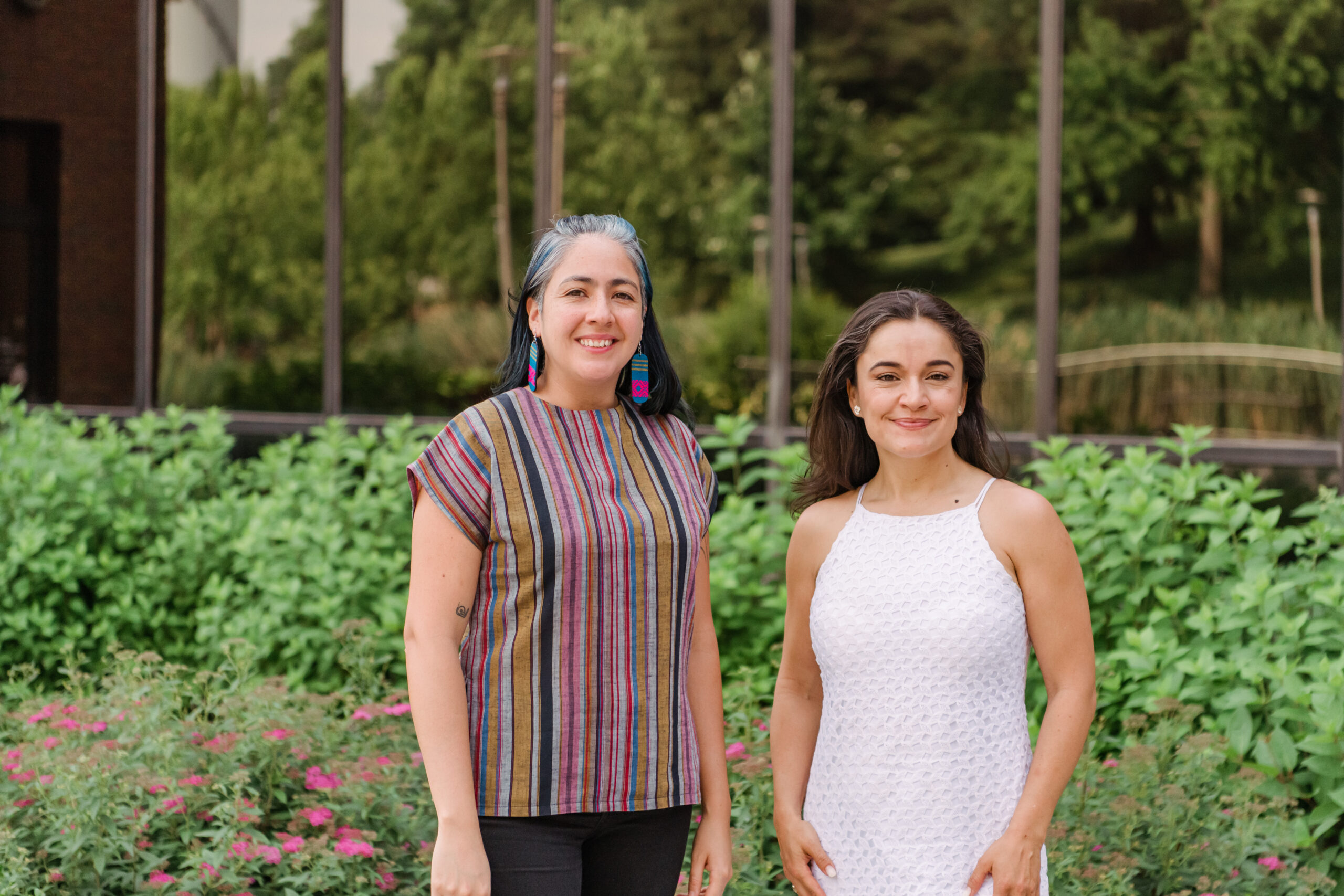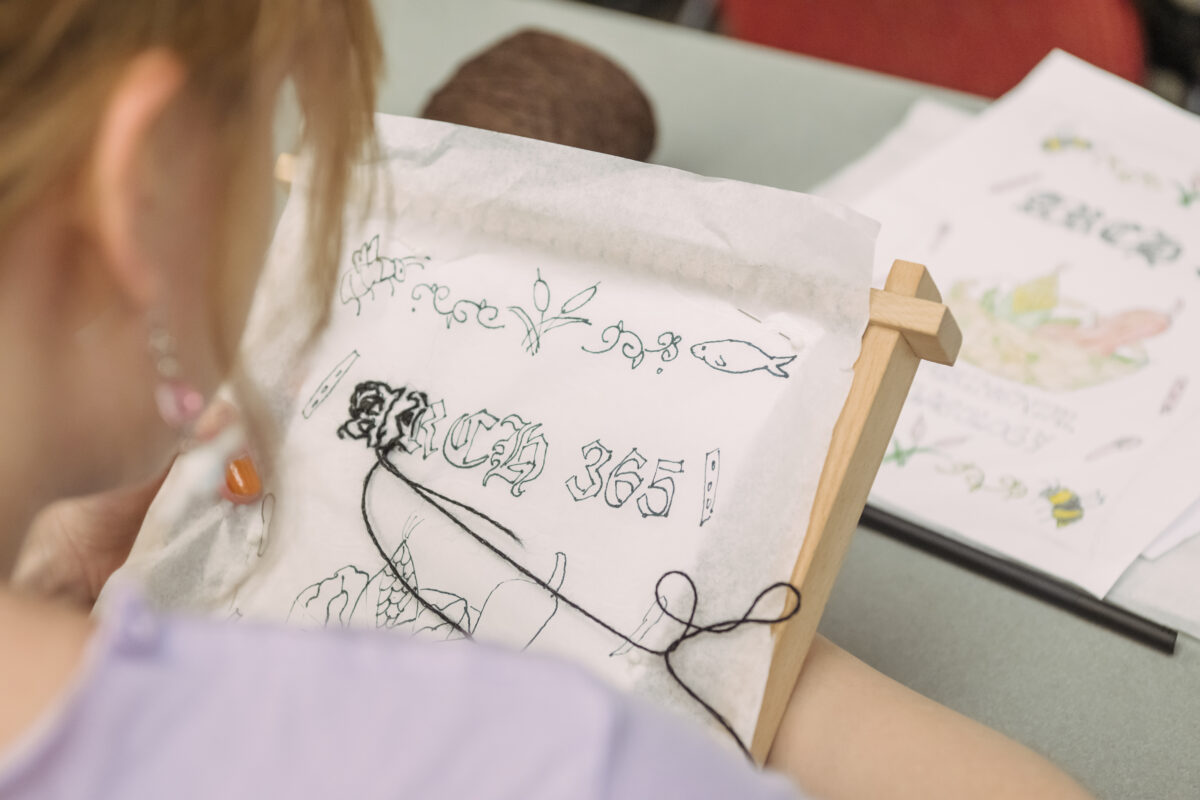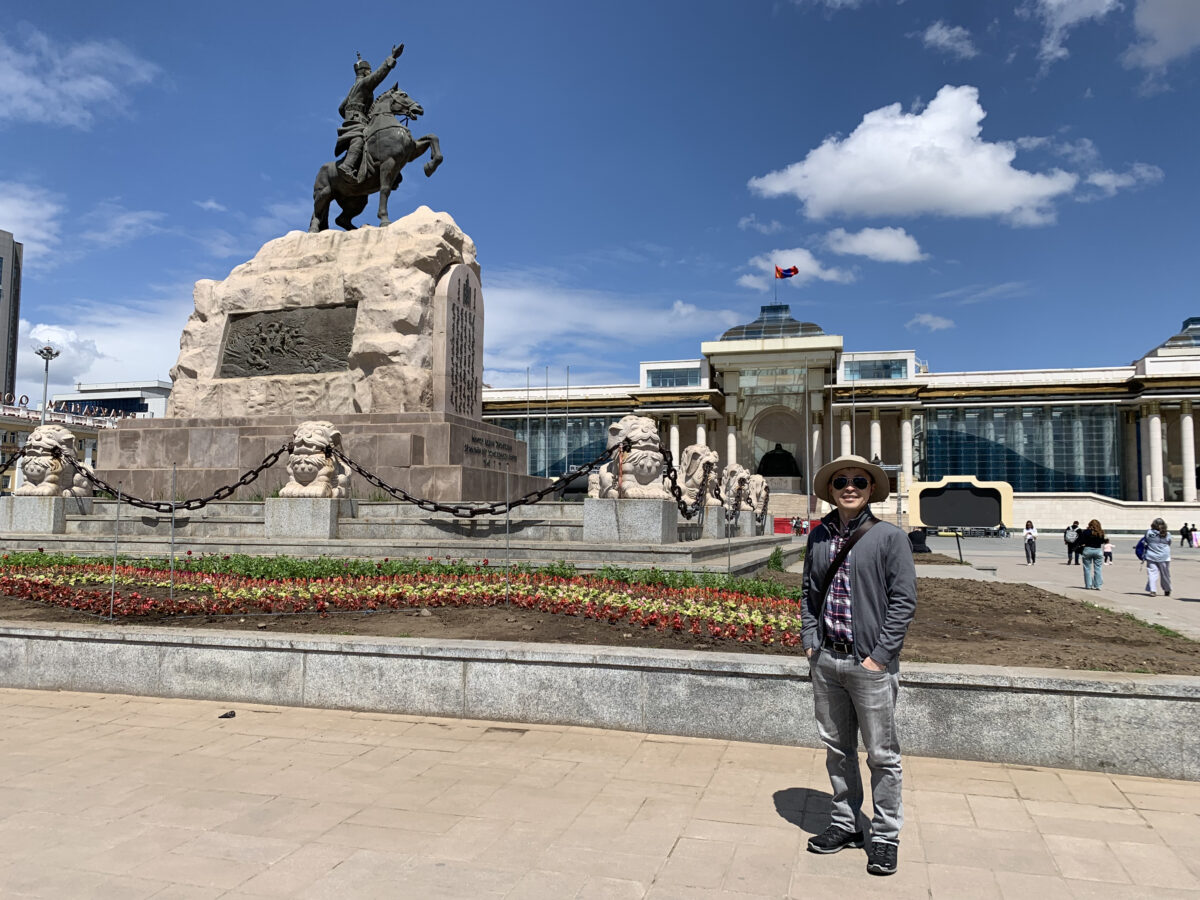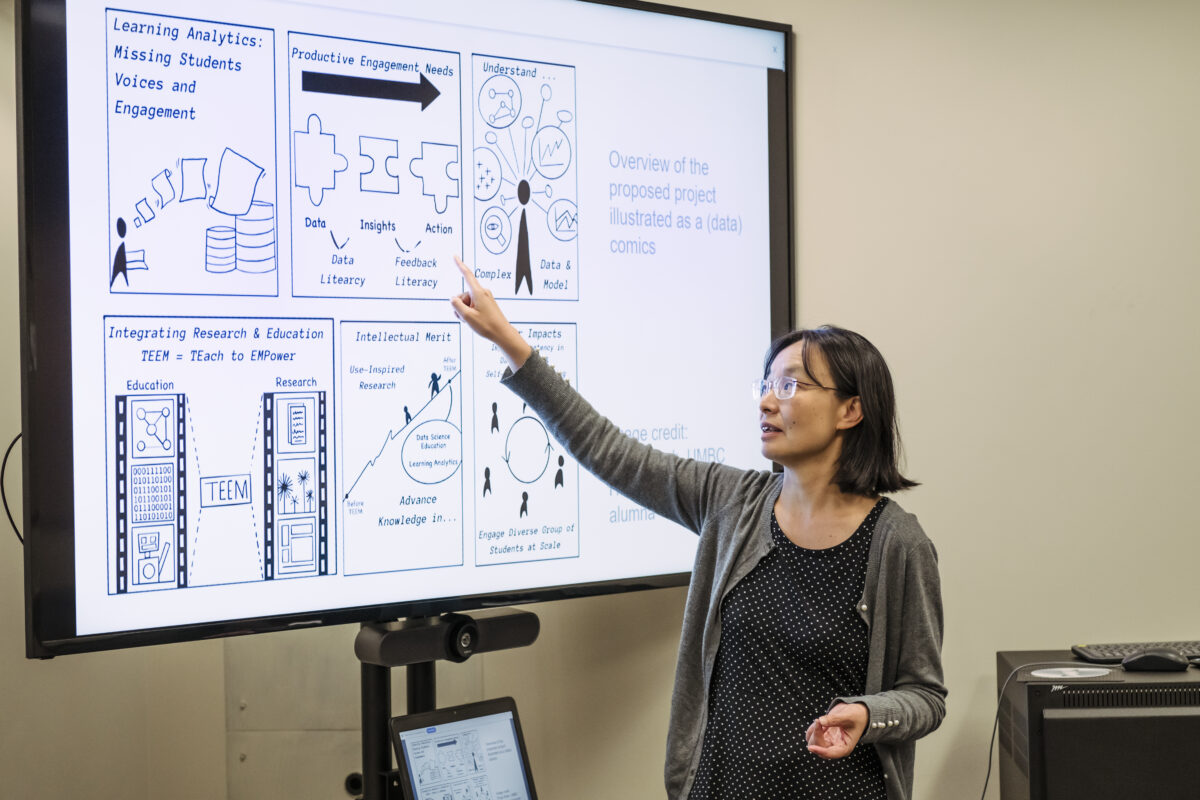Yolanda Valencia, assistant professor of geography and environmental studies, and María Célleri, assistant professor of gender, women’s, and sexuality studies, have received 12-month Career Enhancement Fellowships, funded by the Mellon Foundation and administered by the Institute for Citizens and Scholars. They represent two of nine junior faculty recipients across the country from hundreds of applicants in the 2022 award cycle. Their achievement marks the first time two UMBC junior faculty have received this award simultaneously.
The Career Enhancement Fellowship seeks to increase the presence of underrepresented junior and other faculty members in the humanities, social sciences, and arts by creating career development opportunities for selected Fellows with promising research projects. Valencia and Célleri will dedicate their fellowship to advancing their book projects.
““Both Drs. Célleri and Valencia conduct research that aligns well with the mission of the Institute to support scholars ‘committed to eradicating racial disparities.’ Their work further reifies UMBC’s commitment to community-engaged scholarship, in particular in often overlooked or ignored communities.”
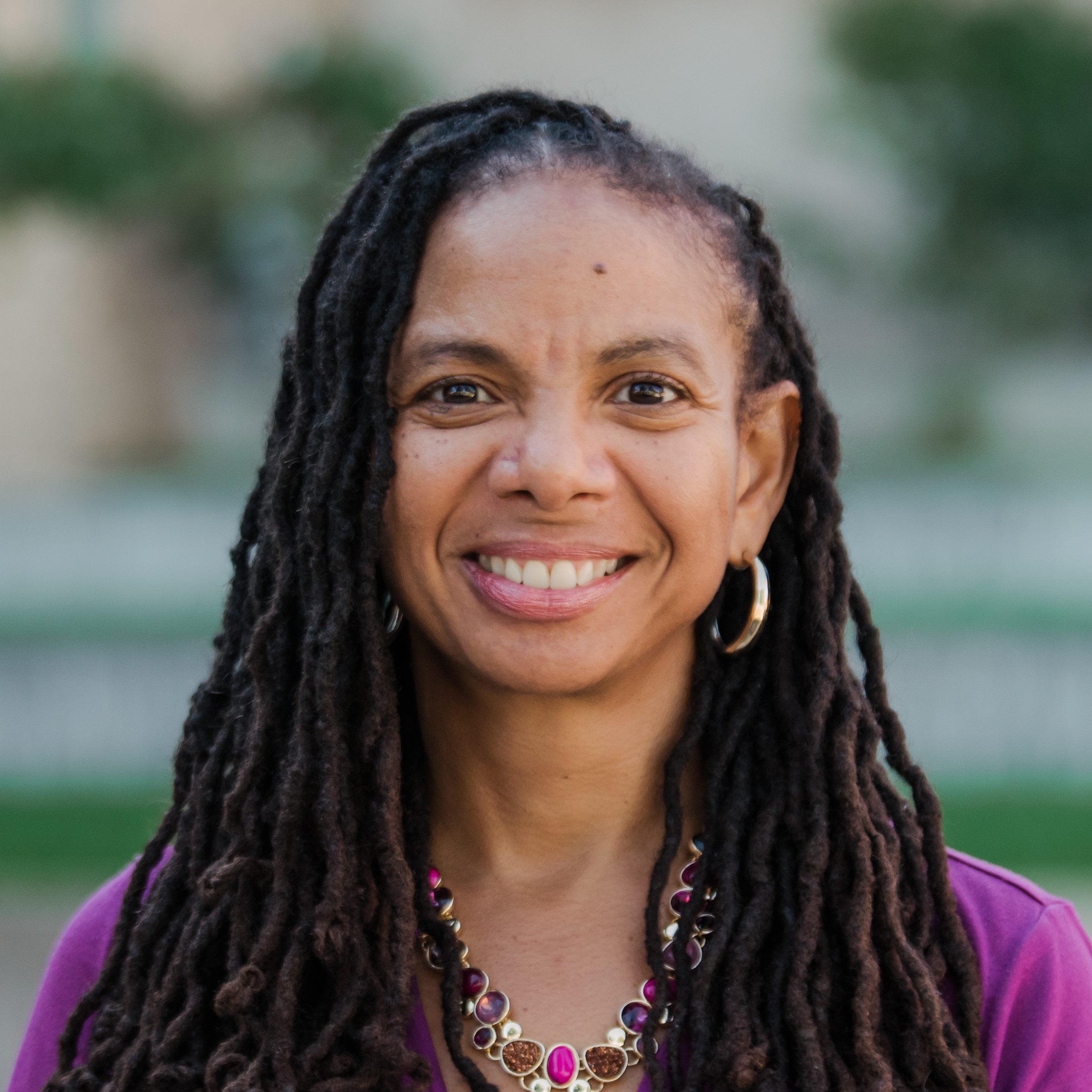
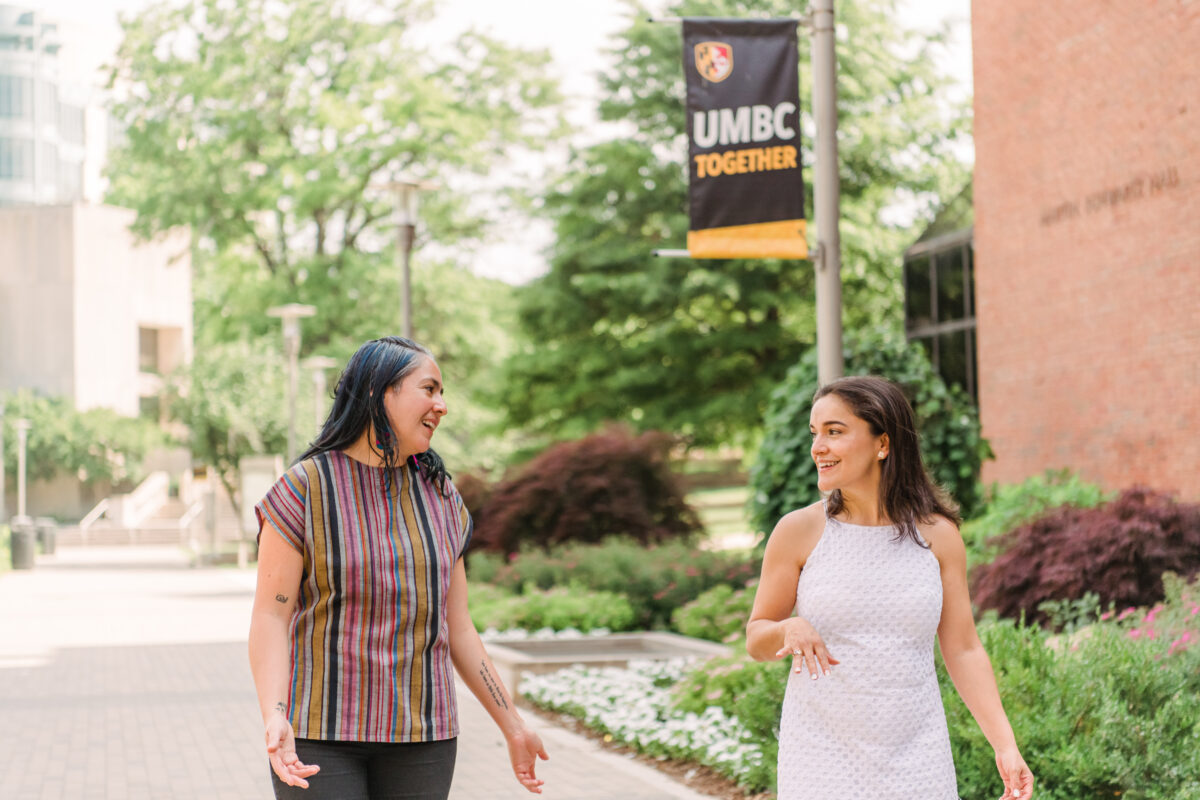
Thriving and oppressive geographies
In the forthcoming book Relational Life: Legal Death, Valencia will explore the Mexican immigrant community of Pasco, Washington, and how this community creates places of peace, tranquility, and family—places of belonging and meaning— under disadvantaged conditions. Her writing draws on years of fieldwork in Pasco, transnational ethnography, archival research, interviews with city leaders, and testimonies from undocumented Mexican immigrants.
“My research reveals that the city of Pasco maintains conditions that exploit immigrant labor by enforcing police violence, criminalization, and intimidation,” says Valencia. “I aim to provide a historical political economy analysis of geographies of oppression overlaid with an analysis of spaces where this community thrives, as they both happen simultaneously across scale, time, and border.”
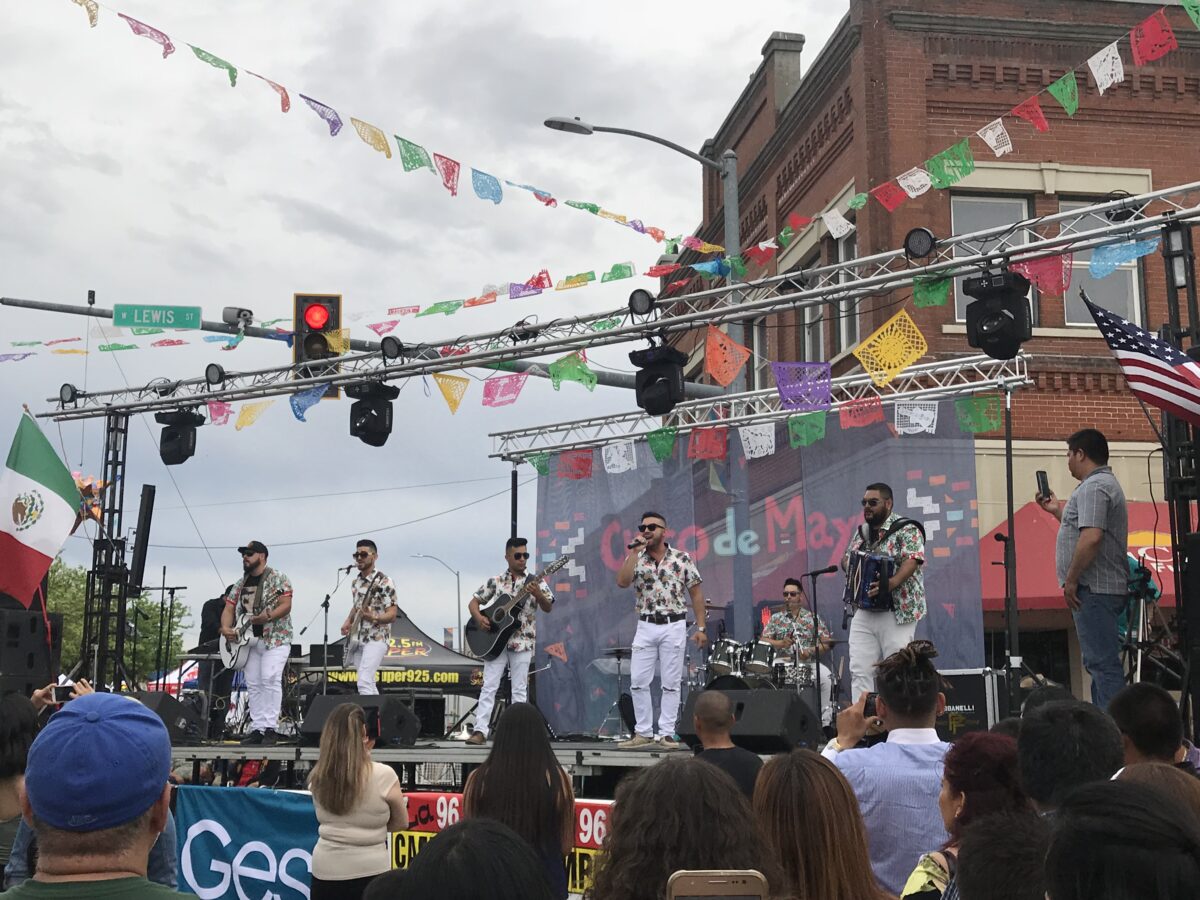
While at UMBC, Valencia has designed three upper-level human geography courses: Geographies of Migration, Latin American Geographies, and Qualitative Methods. She is also developing graduate seminars focused on Geographies of Conquest and Liberation.
Community of support
In addition to the Career Enhancement Fellowship, Valencia has been selected as a 2020 – 2022 Summer Institute on Tenure and Professional Advancement (SITPA) Scholar. SITPA is a mentoring and professional initiative designed to facilitate junior faculty members’ successful transition to tenured associate professor status.
The goal of SITPA is to address the persistent underrepresentation of racial and ethnic minority faculty in academia. The program is funded by a grant from the Andrew W. Mellon Foundation and is administered and hosted by the Center for the Study of Race Ethnicity, and Gender in the Social Sciences (REGSS) at Duke University
“SITPA for me means an opportunity to be part of a diverse community of support in academia, which is helping me carve spaces of belonging as a scholar in higher education,” says Valencia. Mérida Rúa, professor of Latino/a studies at Northwestern University and editor of Latino Urban Ethnography and the Work of Elena Padilla, is her mentor for both awards.
Politics and symbolism of monuments
Uncovering the Virgen del Panecillo: Quito’s Postcolonial Urban Transformation and Decolonial Future is the tentative title of Célleri’s upcoming book. She uses print media, film, photography, and decolonial feminist social, cultural, and political analysis to bring greater understanding to the political and symbolic importance of the Virgen del Panecillo. This well-known monument is a 41-meter-tall aluminum statue of the Virgin of Immaculate Conception placed in Quito, Ecuador’s colonial city center in 1976.
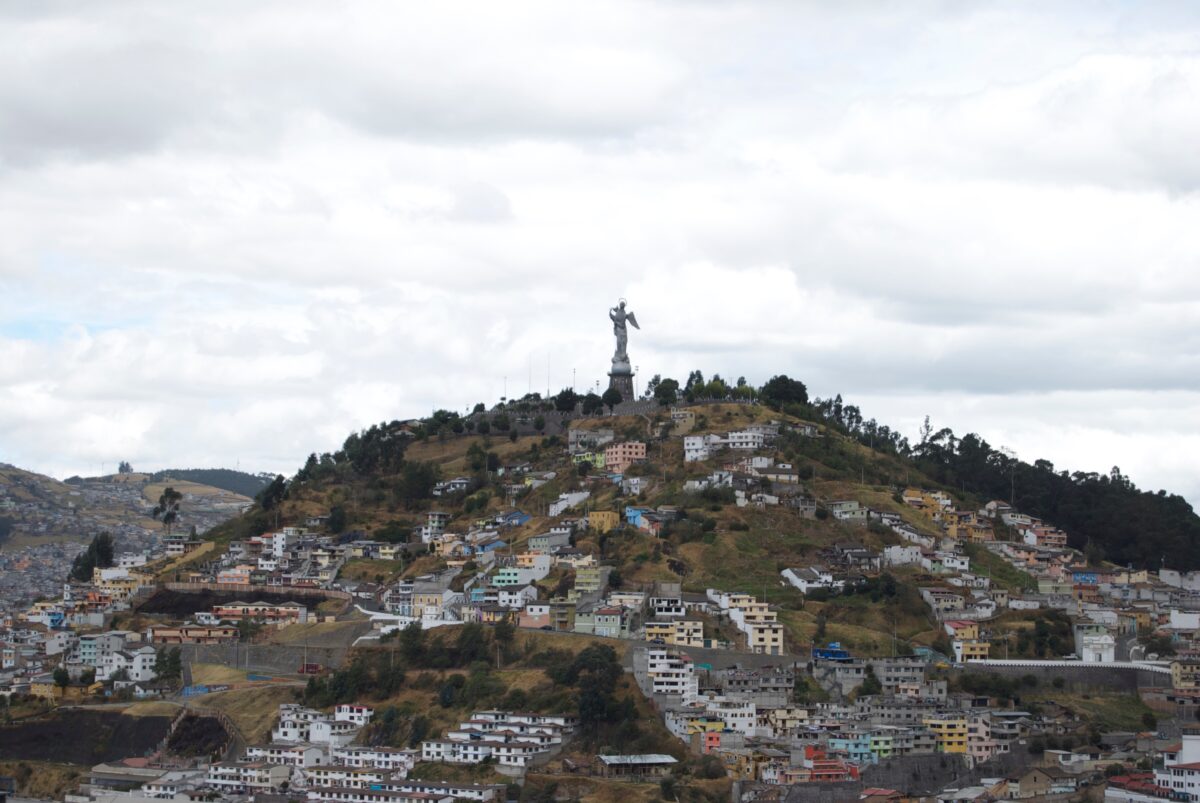
“I demonstrate that uncovering the contentious history of monuments opens the possibilities for reimagining them as sites of decolonial feminist futures,” says Célleri.
“I frame the book around what I term Andean decolonial feminist imaginaries,” she explains. “This is a framework that centers Andean Indigenous cosmology as a tool for comprehensively confronting long-standing colonial logics of social control that haunt Quito’s urban landscape, and which materially affect racialized and gendered populations.”
Connecting with fellow researchers
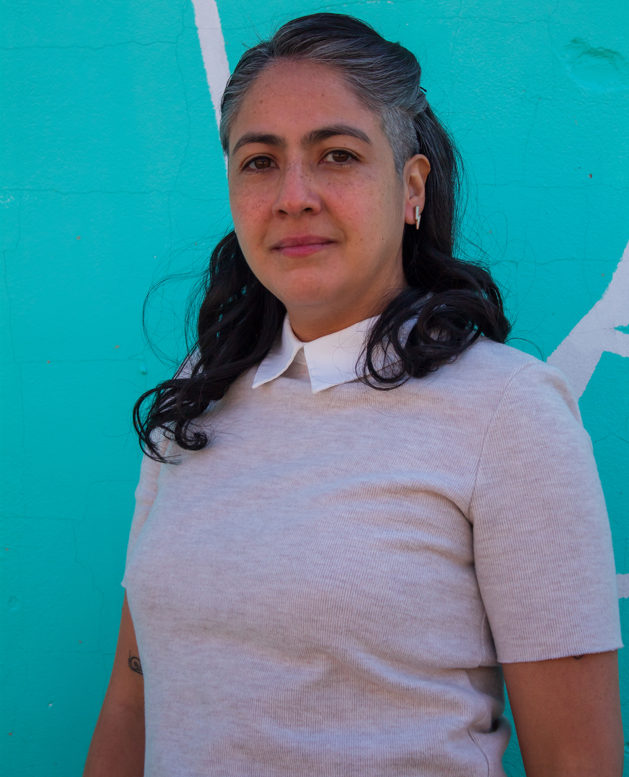
In 2019, Célleri served as a panelist at the National Women’s Studies Association annual conference (on the theme “Protest, Justice, and Transnational Organizing”) and at the Sexuality and Borders Symposium at New York University. There she presented her research on transnational feminist struggles for reproductive rights in the Andes in relation to appropriations of the monument of the Virgen del Panecillo.
“The Career Enhancement Fellowship is a recognition of my hard work and offers the opportunity to work collaboratively on my book project with colleagues and mentors that I admire,” says Célleri. Maria Amelia Viteri, an associate professor of anthropology at the University of Maryland, College Park, and senior social and gender specialist at the Inter-American Development Bank, will mentor Célleri during her fellowship. Viteri is a recognized transnational sociocultural anthropologist of globalization, gender, queer, and migration studies.
Over the past two years at UMBC, Célleri has organized the Latin American Feminisms Working Group through UMBC’s Dresher Center for the Humanities. She teaches Transnational Feminist Film and the course on Gender, Humans Rights, and Political Violence in Latin America. She will teach Indigenous and Decolonial Feminisms, a course she developed, after her fellowship.
Continuing excellence
Valencia and Célleri came to UMBC in 2019. Their work continues a strong history of UMBC scholarship earning recognition and support from the Mellon Foundation and Institute for Citizens and Scholars.
Last year, Sharon Tran, assistant professor of English, became the fifth UMBC faculty member in the humanities to receive the prestigious award. The fellowship supported her book project, Minor Forms: The Affective and Aesthetic Economies of Asian Girlhood. The book examines how the minor figure of the “Asian girl” can provide a new way of understanding U.S. racism and imperialism.
“What an honor for two of our colleagues to be acknowledged by the Institute for Citizens and Scholars amongst this stellar group of junior faculty,” says Moffitt. “Kudos to them both for their efforts to shed light on important lived experiences.”
Both of this year’s recipients will return to teach and share their work at UMBC after their one-year fellowship.
Tags: Award, CAHSS, cahssresearch, GES, GWST, International Stories, Research

